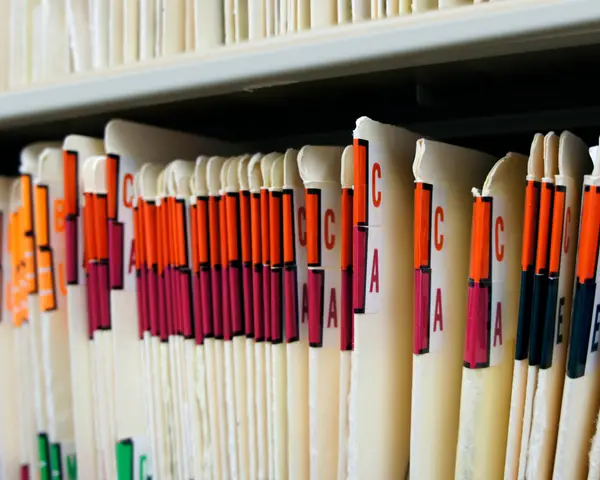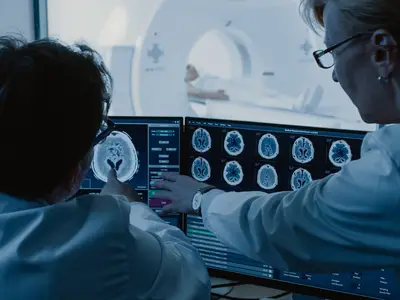As our nation and our world ages, the number of people living with Alzheimer’s disease and related dementias (ADRD) continues to grow. According to the World Health Organization, nearly 75 million people will be living with dementia by 2030. In the United States, almost one in ten people ages 65 or older has dementia. Dementia impacts not only the individual who has been diagnosed, but also their families, caregivers, and communities.
What is Alzheimer's disease?
Alzheimer’s disease is the most common type of dementia. Other common types of dementia include vascular dementia, Lewy body dementia and frontotemporal degeneration disorders. Dementia is a general term for changes in memory thinking, and/or other cognitive skills. Dementia can diminish a person’s daily functioning (driving, shopping, communicating, working), social connectedness, and ability to live independently. It impacts comprehension and judgment and can lead to psychological and behavioral changes. These symptoms can take an emotional and financial toll on the person living with dementia and their caregivers as more supervision becomes necessary for an individual to live safely. The WHO estimates the global cost of dementia in 2019 to have been $1.3 trillion. This includes the costs of direct as well as unpaid care.
RTI has a strong record of supporting communities and the aging network as they build their abilities to identify people with possible dementia, work effectively with individuals and families, and increase their knowledge of and referrals to appropriate services. Our work helps people understand the impact of dementia and provides policymakers with information about the prevalence, costs, and effective approaches to diagnosing, treating, and providing services for people with dementia. RTI staff include researchers, economists, and epidemiologists who have in-depth knowledge of ADRD and aging and are closely involved in the field and aware of emerging issues.
Areas of expertise in Alzheimer's disease and dementia include:
- Providing Technical Assistance
- Developing Data Collection Methods and Tools
- Synthesizing Data and Conducting Case Studies
- Using Nationally Representative Survey Data
- Utilizing Health Economics
Our clients reflect a broad range of government, public, and private organizations, including the Administration on Aging/Administration for Community Living (AoA/ACL), Office for the Assistance Secretary of Planning and Evaluation (ASPE), and pharmaceutical companies.

Providing Technical Assistance
National Alzheimer’s and Dementia Resource Center (NADRC)
RTI has operated the NADRC, funded by ACL, since its inception in 2004. NADRC provides expert technical assistance (TA) to ACL and its dementia program grantees and makes dementia-specific program information and resources available to the public. Activities include:
- Dementia-focused webinar series, reports, toolkits, and other resources
- Data analyses and reporting on progress of ACL grants
- Site visits with ACL dementia grantees
- TA provided to total of 279 grantees in 48 states, Washington D.C., and Puerto Rico – 67 currently active.
As of July 2024, the ACL dementia grant programs have served 71,027 persons living with dementia and 94,946 caregivers and trained 129,859 professionals.

Developing Data Collection Methods and Tools
Assessing the Dementia Capability of Organizations
RTI dementia experts created the Dementia Capability Assessment used by ACL Alzheimer’s Disease Program grantees to determine their current dementia capability and measure changes in capabilities over time. We synthesized input from ACL staff and dementia grantees on quality indicators related to dementia capabilities to develop the 17-item dementia capability assessment. These assessments are completed annually by ACL grantees and partner organizations.
Evaluating the Impact of Dementia Friendly Education and Training
RTI developed a publicly available toolkit and instruments for measuring the impact of dementia-friendly education and training used by ACL Alzheimer’s Disease Program grantees, along with instructions for use, scoring, and reporting. We convened a workgroup of ACL staff and evaluators from ACL dementia grant projects and reviewed existing measures to identify a core set of items to measure the impact of dementia friendly training.

Synthesizing Data and Conducting Case Studies
Identifying Core Elements of Dementia Care and How Those Elements are Implemented
Our experts synthesized clinical practice guidelines and recommendations and conducted case studies on models of dementia care. We conducted a detailed analysis of 37 existing clinical practice guidelines and recommendation documents to identify components of comprehensive dementia care later reviewed by five subject matter experts. We also conducted site visits and case studies of five dementia care programs representing varied settings. The final report – Examining Models of Dementia Care – can assist policymakers and other audiences better understand dementia care practices by defining care components of each program.

Using Nationally Representative Survey Data
End-of-Life Disability and Dementia
This study estimated the level of disability experienced by older adults in the United States with and without dementia in the last 4 years of life. We evaluated the influence of caregiving, comorbid conditions, and patient demographics on these disability trajectories. We conducted a literature review to inform the analytical model, analyzed the 2000-2012 Health and Retirement Survey (HRS) to generate estimates of dementia in end-of-life disability trajectories, and developed prognosis estimates for people living with dementia for policymakers and clinicians. The resulting estimates can be used determine end-of-life trajectories for people living with dementia. This research showed that people living with dementia had higher and sustained levels of activities of daily living (ADL) impairment for longer periods of time before death; dementia was associated with a slower and more gradual increase in ADL impairments in the last 4 years of life; and functional status in the last 6 months of life was not significantly different between those with or without dementia.
Identifying and Understanding the Characteristics of Older Adults with Dementia
Researchers analyzed nationally representative data from the National Health and Aging Trends Study (NHATS) and the National Study on Caregiving (NSOC) to create the chartbook, Community-dwelling Older Adults with Dementia and Their Caregivers: Key Indicators from the National Health and Aging Trends Study. This work provided information for policymakers and researchers on the areas of unmet need among people living with dementia and their caregivers and showed that majority of older adults living with dementia reported having three or more chronic conditions (59%); limitations with at least one self-care, mobility, or household activity (88%); and needing assistance with two or more self-care or mobility activities (64%). Most older adults living with dementia receive assistance from two or more caregivers (70%). Informal caregivers reported personal enrichment derived from caregiving (90%), as well as substantial personal cost (40%).

Utilizing Health Economics
Understanding the Main Cost Drivers in Dementia
This systematic review, supported by the European Commission, sought to develop a better understanding of the main cost drivers of dementia in different care settings. A review of cost-of-illness studies in dementia was conducted and costs per patient by care setting were analyzed for total, direct, indirect, and informal costs and related to cost perspective and disease severity. In total, 27 studies from 14 different health care systems were evaluated. In the included studies, total annual costs for dementia of up to USD 70,911 per patient were estimated. The shares of cost categories in the total costs for dementia indicate significant differences for different care settings. Overall main cost drivers of dementia are nursing home expenditures and home-based long-term care rather than the direct medical costs (inpatient, outpatient services, medication).



















